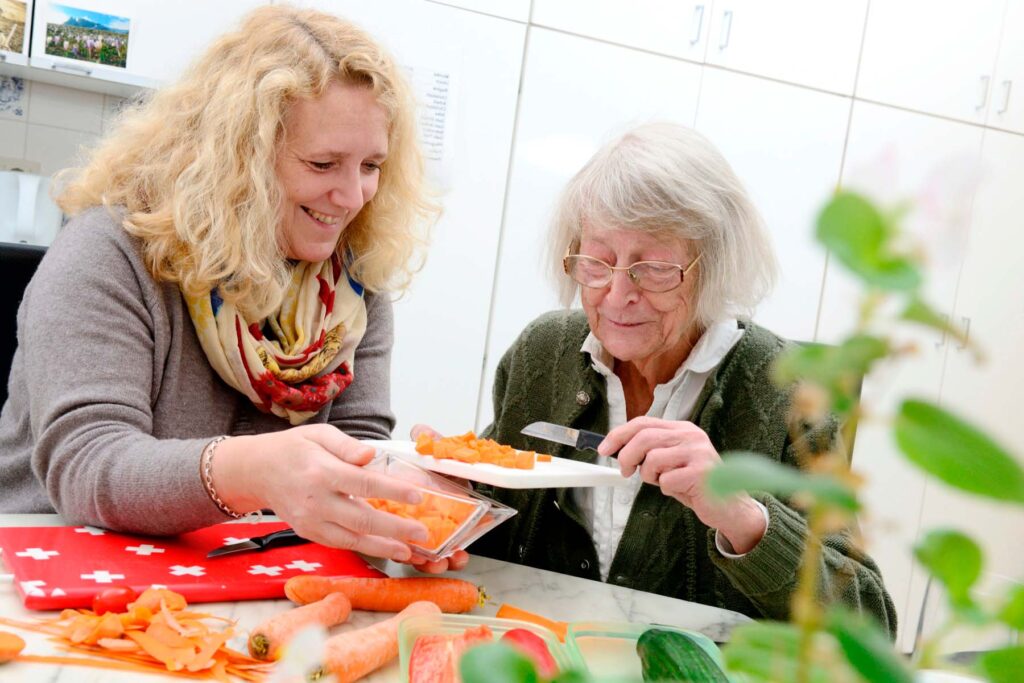
Are you caring for a person with Alzheimer’s? Perhaps vascular dementia, Lewy body dementia, or any one of the many conditions that cause memory loss and cognitive impairment?
While there are different medical treatments depending on the underlying condition, the actual manifestation of dementia tends to be progressive (gets worse over time) and to follow basic patterns of loss. Our caregivers are extremely knowledgeable about the stages of dementia. They know what is required to reduce outbursts and confusion while at the same time providing appropriate stimulation and engagement with life.
- Early stage. The focus might be on continuing as many activities as before, but with a confident and reliable companion who can steer clear of common triggers and help your loved one maintain dignity and social connections. By staying engaged, the caregiver can help your relative stave off the high incidence of depression that frequently appears at this point in the disease.
- Middle stage. While aging in place is a priority, it is not generally safe for a person in the middle stage of dementia to live on their own. Sundown syndrome and wandering may become a problem. Bathing and poor hygiene are common issues, as are paranoia and emotional outbursts. Our caregivers are adept at redirection strategies designed to validate feelings and shift the attention to less stressful topics or to change to less stressful environments.
- Late stage. Walking and incontinence become a challenge. Communication is very limited, with some understanding of the spoken word but very little ability to respond. Music has been found to pierce the clouded thinking of people with late-stage dementia and bring joy to even the most withdrawn individuals. Our caregivers also know to offer simple activities that speak to the senses: Putting lotion on the arms for touch and smell. Getting outside and pointing out the feel of the sun or wind on the skin, listening to bird chatter, looking at delightful sights for the eyes, smelling the flowers in the air. The goal is to provide joy without overwhelming your loved one with too much stimulation.
- Final stage. As the body’s systems close down, your loved one may lose interest in eating. A warm and attentive caregiver can coax a client to eat with small bites and great patience, encouraging them to chew thoroughly and swallow slowly so food does not go down the windpipe and cause choking or pneumonia. If tube feeding is chosen, our caregivers are adept at managing this form of nutrition. Hallucinations are common in the final stage, as are agitation and breathing problems. Our caregivers have training in palliative care and comfort measures to support your loved one to “land softly” on this last leg of their journey.

